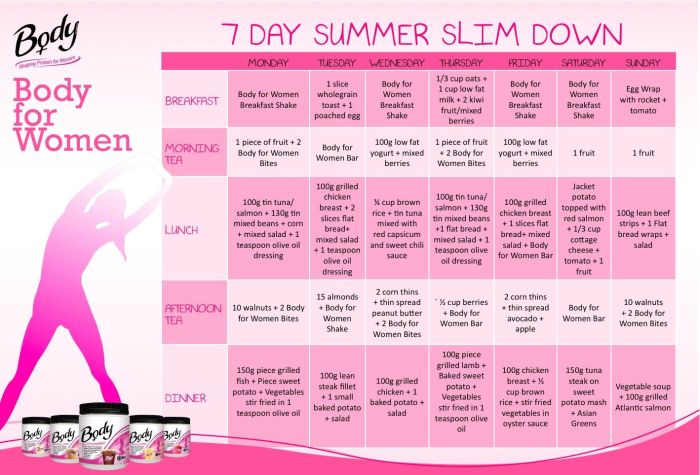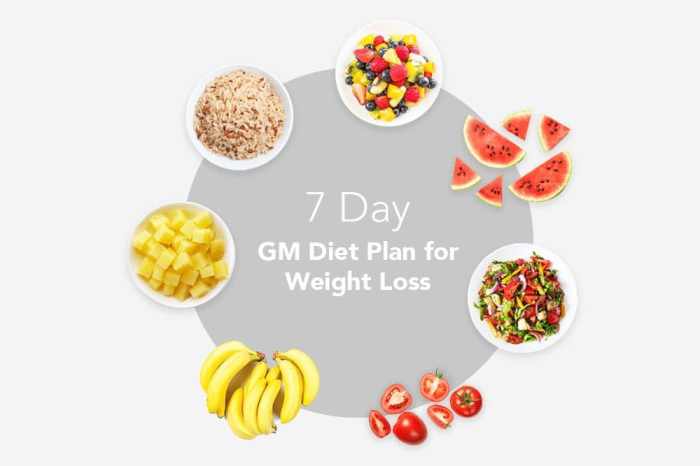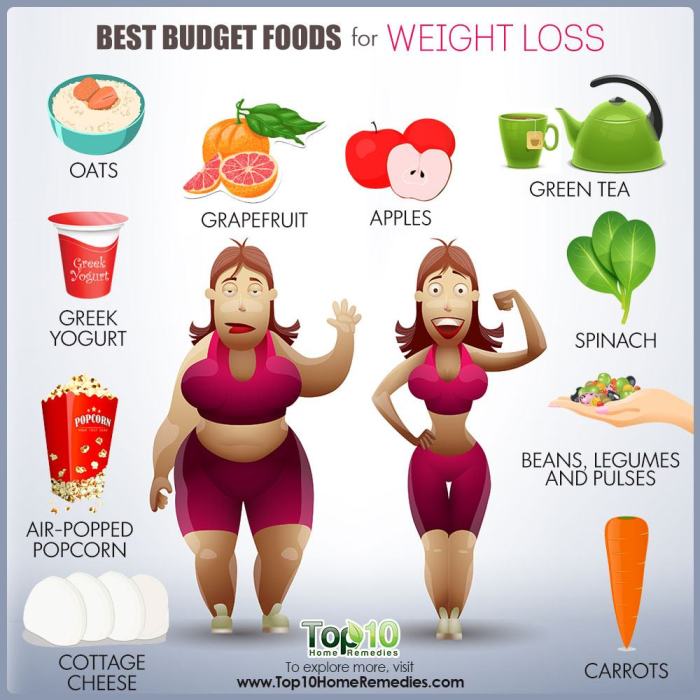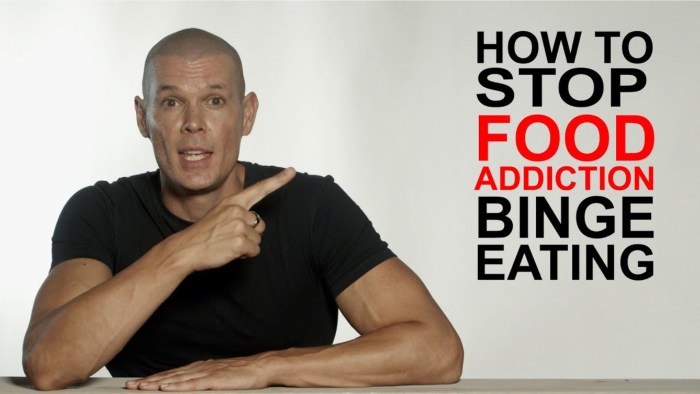Embark on a journey through the evolving world of weight loss diets in 2025, exploring trends, popular choices, and the technological innovations revolutionizing the way we approach weight management.
Get ready to uncover the secrets behind the most effective diet strategies and how technology is reshaping the future of weight loss!
Best Weight Loss Diets 2025
Weight loss diets have always been a hot topic, with new trends and fads constantly emerging. In 2025, the landscape of weight loss diets is expected to be even more diverse and innovative than ever before. With advancements in technology and a growing emphasis on health and wellness, the way we approach weight loss is evolving rapidly.
Current Landscape of Weight Loss Diets
The current landscape of weight loss diets is filled with a variety of options, ranging from the popular keto diet to intermittent fasting and plant-based diets. Many people are also turning to personalized nutrition plans tailored to their specific needs and goals. The focus is not just on losing weight but also on overall health and well-being.
Trends Shaping Weight Loss Diets for 2025
As we look ahead to 2025, several trends are expected to shape the weight loss diet industry. One of the key trends is the emphasis on sustainability and ethical sourcing of food. More people are becoming conscious of the environmental impact of their food choices and opting for diets that are not only good for their health but also for the planet.
Most Popular Diets Expected to Dominate in 2025
In 2025, some of the most popular diets expected to dominate include the Mediterranean diet, which focuses on whole foods like fruits, vegetables, whole grains, and lean proteins. The flexitarian diet, which is a flexible approach to vegetarianism, is also gaining popularity. Additionally, the DASH diet, designed to lower blood pressure, is expected to continue to be a top choice for those looking to improve their overall health.
Role of Technology in Revolutionizing Weight Loss Diets
Technology is playing a significant role in revolutionizing weight loss diets. From wearable fitness trackers to meal planning apps and online coaching programs, technology is making it easier for people to track their progress, stay motivated, and make informed decisions about their diet and exercise routines. In 2025, we can expect to see even more innovative solutions that leverage technology to help people achieve their weight loss goals more effectively.
Health Addictions
Understanding the impact of addiction on overall health is crucial in addressing the challenges individuals face. Addiction can have detrimental effects on physical, mental, and emotional well-being, leading to a decline in overall health.
Alternative Treatments for Addiction
Exploring alternative treatments for addiction can provide individuals with new avenues for recovery and support. From therapy and counseling to holistic approaches like yoga and meditation, there are various options available to help individuals overcome their addictions.
Connection Between Mental Health and Addiction
- Individuals struggling with addiction often have underlying mental health issues that contribute to their substance abuse. It is essential to address these mental health concerns through therapy, medication, or other interventions to support long-term recovery.
- Improving mental health can reduce the risk of developing addictions and help individuals maintain a healthy lifestyle. Seeking professional help and building a strong support system are crucial steps in addressing the connection between mental health and addiction.
Success Stories of Overcoming Addictions
“I struggled with addiction for years, but with the right support and determination, I was able to overcome it. Seeking help from professionals and connecting with others who understood my journey made all the difference in my recovery.”
- Many individuals have successfully overcome addictions through perseverance, support, and access to effective treatment options.
- Sharing success stories can inspire others to seek help and take steps towards recovery, highlighting the importance of hope and resilience in the journey towards wellness.
Alternative Treatment
Alternative treatment refers to healthcare practices that are not considered mainstream or conventional medicine. These treatments often focus on a holistic approach to health and wellness, taking into account the mind, body, and spirit.
Principles of Alternative Treatments in Healthcare
Alternative treatments are based on the principles of natural healing, prevention, and treating the root cause of health issues rather than just symptoms. They often involve therapies such as acupuncture, herbal medicine, chiropractic care, and meditation.
Comparison with Traditional Medical Approaches
Traditional medical approaches typically rely on pharmaceuticals, surgeries, and other interventions to manage symptoms or treat diseases. In contrast, alternative treatments aim to support the body’s natural healing abilities and promote overall well-being.
Benefits of Integrating Alternative Treatments
Integrating alternative treatments into mainstream healthcare can offer patients more options for managing their health. These treatments may have fewer side effects, be less invasive, and focus on prevention, leading to improved quality of life for many individuals.
Examples of Successful Alternative Treatment Therapies
- Acupuncture: This traditional Chinese medicine practice involves inserting thin needles into specific points on the body to promote healing and relieve pain.
- Herbal Medicine: The use of plants and plant extracts to treat various health conditions has been practiced for centuries and continues to be a popular alternative treatment option.
- Mindfulness Meditation: This practice focuses on cultivating awareness and acceptance of the present moment, reducing stress and promoting mental well-being.
Health Dentistry
Maintaining good oral health is crucial for overall well-being. The health of your teeth and gums not only affects your smile but also plays a significant role in your overall health. Poor oral hygiene can lead to various health issues such as gum disease, heart disease, and diabetes.
Latest Advancements in Dental Technology
With advancements in dental technology, procedures have become more efficient and less invasive. Technologies such as 3D imaging, laser dentistry, and digital impressions have revolutionized the field of dentistry, making treatments more precise and comfortable for patients.
Common Dental Procedures and Their Impact on Health
Common dental procedures such as regular cleanings, fillings, root canals, and extractions are essential for maintaining oral health. These procedures help prevent and treat issues such as cavities, gum disease, and infections, ultimately contributing to better overall health and well-being.
Tips for Maintaining Good Oral Hygiene
- Brush your teeth at least twice a day with fluoride toothpaste.
- Floss daily to remove plaque and food particles between your teeth.
- Limit sugary and acidic foods and drinks to prevent tooth decay.
- Schedule regular dental check-ups and cleanings to catch and address issues early.
- Consider using mouthwash to help kill bacteria and freshen breath.
Health Fitness
Regular physical activity and exercise play a crucial role in maintaining overall health and well-being. Physical fitness is not just about looking good; it is about improving cardiovascular health, boosting metabolism, enhancing mood, and increasing energy levels. A combination of proper nutrition and exercise can lead to a healthier lifestyle and a reduced risk of chronic diseases.
Effective Workout Routines
- Cardiovascular Exercise: Incorporate activities like running, cycling, or dancing to improve heart health and burn calories.
- Strength Training: Include weightlifting or bodyweight exercises to build muscle mass, increase metabolism, and improve bone density.
- Flexibility Training: Practice yoga or Pilates to enhance flexibility, reduce the risk of injuries, and promote relaxation.
Role of Nutrition
Nutrition plays a vital role in supporting fitness goals by providing the necessary nutrients for energy, muscle recovery, and overall well-being. A balanced diet rich in lean proteins, complex carbohydrates, healthy fats, and vitamins and minerals is essential for optimal performance during workouts and recovery afterward.
Tips for Staying Motivated
- Set Realistic Goals: Establish achievable short-term and long-term fitness goals to stay motivated and track progress.
- Vary Your Routine: Keep workouts interesting by trying different exercises, classes, or outdoor activities to prevent boredom and plateaus.
- Find a Workout Buddy: Partnering up with a friend or joining a fitness group can provide accountability, support, and motivation to stick to your exercise regimen.
- Reward Yourself: Celebrate milestones and achievements with non-food rewards to reinforce positive behavior and maintain motivation.
Health Medicine
Medical treatments are constantly evolving, with new technologies and advancements shaping the way healthcare is delivered. Personalized medicine, in particular, has gained prominence in recent years, offering tailored treatment plans based on an individual’s genetic makeup, lifestyle, and specific health needs. This approach allows for more precise and effective interventions, ultimately improving patient outcomes and quality of care. Preventive medicine also plays a crucial role in maintaining health, focusing on lifestyle modifications, screenings, and early interventions to prevent the onset of diseases.
Looking ahead, the future of healthcare and medicine is likely to be driven by innovation, digital health solutions, and a greater emphasis on holistic and patient-centered care.
Latest Developments in Medical Treatments
Medical treatments continue to advance rapidly, with groundbreaking innovations in areas such as gene therapy, immunotherapy, and precision medicine. These cutting-edge therapies are revolutionizing the way we approach and treat various diseases, offering new hope for patients with previously untreatable conditions.
Impact of Personalized Medicine on Healthcare
Personalized medicine has the potential to transform healthcare by tailoring treatment plans to individual patients, taking into account their unique genetic, environmental, and lifestyle factors. This approach can lead to more targeted interventions, reduced side effects, and improved outcomes, marking a shift towards more personalized and effective healthcare delivery.
Importance of Preventive Medicine in Maintaining Health
Preventive medicine focuses on proactive measures to prevent diseases before they occur, emphasizing lifestyle modifications, screenings, and early interventions. By promoting healthy behaviors and addressing risk factors early on, preventive medicine plays a crucial role in reducing the burden of chronic illnesses and improving overall population health.
Future of Healthcare and Medicine
The future of healthcare is likely to be shaped by technological advancements, telemedicine, artificial intelligence, and a greater focus on patient-centered care. As digital health solutions become more integrated into healthcare delivery, patients can expect more personalized, efficient, and accessible services. Additionally, advancements in medical research and innovation will continue to drive progress in treatment modalities, disease prevention, and overall health outcomes.
Health Pharmacy
Pharmacies play a crucial role in the healthcare system by providing access to essential medications and offering valuable guidance on their proper use.
Role of Pharmacies in Healthcare
- Pharmacists help patients understand their medications, including dosages, potential side effects, and interactions with other drugs.
- Pharmacies ensure that patients receive the correct medications prescribed by healthcare providers, reducing the risk of medication errors.
- Pharmacists collaborate with other healthcare professionals to optimize treatment outcomes and promote overall health and well-being.
Importance of Medication Adherence
- Adhering to prescribed medication regimens is crucial for achieving optimal health outcomes and managing chronic conditions effectively.
- Non-adherence to medications can lead to treatment failure, disease progression, and increased healthcare costs.
- Pharmacists play a key role in educating patients about the importance of medication adherence and addressing barriers to compliance.
Advancements in Pharmaceuticals
- Recent advancements in pharmaceuticals have led to the development of innovative medications targeting specific diseases and conditions.
- Biologics, precision medicine, and gene therapy are revolutionizing treatment options and improving patient outcomes.
- Pharmacists stay informed about the latest advancements in pharmaceuticals to provide up-to-date information and recommendations to patients.
Tips for Safe and Effective Medication Use
- Always follow the prescribed dosage instructions and schedule provided by your healthcare provider or pharmacist.
- Keep a record of all medications you are taking, including over-the-counter drugs, supplements, and herbal remedies.
- Avoid sharing medications with others and never take medications prescribed for someone else.
- Consult your pharmacist or healthcare provider if you have any questions or concerns about your medications.
Weight Loss
Weight loss is a common goal for many individuals seeking to improve their health and well-being. Achieving weight loss requires a combination of healthy eating habits, regular exercise, and a positive mindset. Setting realistic goals and staying committed to a balanced lifestyle are key factors in successful weight loss journeys.
Setting Realistic Weight Loss Goals
When setting weight loss goals, it is important to be realistic and specific. Instead of focusing on a large number of pounds to lose, consider setting smaller, achievable goals over time. This can help you stay motivated and track your progress effectively.
- Set a specific target weight or clothing size to aim for.
- Break down your overall goal into smaller milestones to celebrate along the way.
- Track your progress regularly and adjust your goals as needed.
Balanced Diet and Regular Exercise
Achieving weight loss is not just about cutting calories; it’s also about nourishing your body with the right nutrients and staying active. A balanced diet that includes a variety of fruits, vegetables, lean proteins, and whole grains, paired with regular exercise, can help you reach your weight loss goals more effectively.
- Focus on portion control and mindful eating habits.
- Incorporate strength training and cardio exercises into your routine for optimal results.
- Stay consistent with your healthy habits to maintain long-term weight loss success.
Psychological Aspects of Weight Loss and Body Image
Weight loss journeys often involve emotional challenges and mental barriers that can impact progress. It’s essential to address the psychological aspects of weight loss, such as self-esteem, body image, and emotional eating habits, to achieve sustainable results.
- Seek support from friends, family, or a professional counselor to navigate emotional roadblocks.
- Practice self-love and positive affirmations to boost confidence along the way.
- Acknowledge and address triggers that may lead to unhealthy eating patterns or self-sabotage.
Success Stories of Significant Weight Loss
Many individuals have successfully transformed their bodies and lives through dedicated weight loss efforts. These success stories inspire others to believe in their potential and commit to their own health and wellness goals. Here are some examples of remarkable weight loss achievements:
- John lost 50 pounds in six months by following a balanced diet and exercising regularly.
- Sarah overcame emotional eating habits and lost 100 pounds over a year through therapy and self-care practices.
- Michael achieved his weight loss goal of fitting into his dream suit for his wedding by staying committed to his fitness routine and nutritious meals.
Women & Health
Women face various gender-specific health issues that require attention and proactive measures to maintain overall well-being. From reproductive health to hormonal imbalances, women’s health concerns can significantly impact their quality of life. Regular screenings, check-ups, and self-care practices are essential for early detection and prevention of potential health risks. Empowering women to advocate for their health and prioritize self-care is crucial in promoting a healthy lifestyle.
Common Women’s Health Concerns
- Reproductive Health: Regular gynecological check-ups and screenings are important for early detection of conditions such as cervical cancer, breast cancer, and sexually transmitted infections.
- Hormonal Imbalances: Conditions like polycystic ovary syndrome (PCOS) and menopause can cause hormonal imbalances, affecting overall health and well-being.
- Osteoporosis: Women are more prone to osteoporosis due to lower bone density, emphasizing the importance of calcium-rich diet and regular exercise.
- Mental Health: Women are at a higher risk of experiencing anxiety, depression, and other mental health issues, highlighting the need for mental health support and awareness.
Preventive Measures for Women’s Health
- Maintain a Balanced Diet: Eating a nutritious diet rich in fruits, vegetables, whole grains, and lean proteins can help prevent various health issues.
- Stay Active: Regular physical activity is essential for maintaining a healthy weight, reducing the risk of chronic diseases, and improving overall well-being.
- Manage Stress: Practicing stress-reducing techniques such as meditation, yoga, or mindfulness can help improve mental health and overall quality of life.
- Quit Smoking: Smoking can increase the risk of various health issues, including heart disease, lung cancer, and other respiratory conditions.
Importance of Regular Screenings and Check-ups
- Early Detection: Regular screenings can help detect health issues in their early stages when they are more treatable.
- Preventive Care: Check-ups with healthcare providers can help monitor overall health and address any concerns before they escalate.
- Personalized Care: Women’s health needs are unique, and regular check-ups allow for personalized care plans tailored to individual health goals.
Empowering Women in Health Advocacy
- Self-Advocacy: Encouraging women to be proactive in their health decisions, ask questions, and seek second opinions when needed.
- Community Support: Building a supportive network of women who prioritize health and well-being can provide encouragement and motivation for self-care practices.
- Educational Resources: Access to reliable health information and resources empowers women to make informed choices about their health and wellness.
End of Discussion
As we conclude our exploration of Best weight loss diets 2025, remember to stay informed about the latest trends, incorporate innovative techniques, and embrace the power of technology to achieve your weight loss goals effectively.
Popular Questions
What are the key trends shaping weight loss diets in 2025?
In 2025, trends like personalized diet plans and AI-driven weight management tools are expected to dominate the weight loss landscape.
How is technology revolutionizing weight loss diets?
Technology is playing a crucial role in weight loss diets by offering innovative apps, smart devices, and virtual coaching services to enhance the effectiveness of weight management.
Which popular diets are expected to lead the way in 2025?
Diets like the Mediterranean diet, intermittent fasting, and plant-based eating are anticipated to be among the most popular choices for weight loss in 2025.
Can alternative treatments be integrated into weight loss plans?
Yes, alternative treatments like acupuncture, herbal remedies, and mindfulness practices can complement traditional weight loss strategies for better results.
How important is regular exercise in weight loss?
Regular exercise is essential for weight loss as it helps burn calories, build muscle, and improve overall health and fitness levels.






